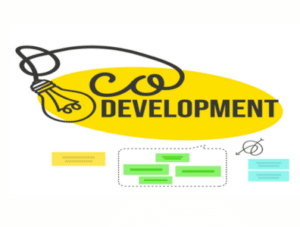Table of Contents
advantages and disadvantages of php

Advanced PHP Features:
- Object-Oriented Programming (OOP): While PHP started as a procedural language, it fully supports OOP concepts like classes, inheritance, and encapsulation. Understanding OOP allows you to write more modular, reusable, and maintainable code.
- Namespaces: Namespaces help organize code by preventing naming conflicts, especially when working with large projects or multiple libraries.
- Generics: Introduced in PHP 7.0, generics allow you to write code that works with various data types without sacrificing type safety.
- Closures: Closures are anonymous functions that can access variables from their enclosing scope. They are powerful tools for creating reusable functionality within your code.
Performance Optimization Techniques:
- Caching: Implementing caching mechanisms can significantly improve the performance of your PHP applications by storing frequently accessed data for faster retrieval.
- Memcached and Redis: These in-memory data stores can be used to cache data objects for even faster access compared to traditional file-based caching.
- Code Profiling: Tools like Xdebug can help you identify performance bottlenecks in your code, allowing you to optimize critical sections for better efficiency.
Security Best Practices:
- Input Validation and Sanitization: Always validate and sanitize user input to prevent common web vulnerabilities like SQL injection and cross-site scripting (XSS).
- Prepared Statements: Using prepared statements ensures that user input is treated as data and not as part of the SQL query, mitigating SQL injection risks.
- Password Hashing: Always store passwords securely using strong hashing algorithms like bcrypt or Argon2.
- Session Management: Securely manage user sessions to prevent unauthorized access and session hijacking.
Community and Learning Resources:
- PHP Conferences and Meetups: Attending conferences and meetups allows you to network with other PHP developers, learn from experienced professionals, and stay updated on the latest trends.
- PHP Podcasts and Blogs: Several high-quality PHP podcasts and blogs offer insights, tutorials, and discussions on various PHP development topics.
- Contributing to Open Source Projects: Contributing to open-source PHP projects is a fantastic way to learn from experienced developers, improve your skills, and give back to the community.
Advantages:

- Free and Open Source: PHP is free to use and modify, making it a cost-effective option for developers.
- Easy to Learn: With a syntax similar to C, PHP has a gentle learning curve for beginners.
- Large Community and Resources: A vast community of PHP developers provides extensive online support, tutorials, and libraries.
- Platform Independent: PHP runs seamlessly on various operating systems like Windows, Linux, and macOS.
- Scalability: PHP can handle small-scale websites to complex applications with high traffic.
- Fast Performance: PHP is known for its speed and efficiency, leading to faster loading times for webpages.
Disadvantages:
- Security Concerns: Early versions of PHP were susceptible to security vulnerabilities, though newer versions have improved security features. Careful coding practices are still important.
- Inconsistent Syntax: PHP’s syntax can be somewhat inconsistent at times, which can make code harder to read and maintain.
- Limited Debugging Tools: Compared to some other languages, PHP has fewer built-in debugging tools.
Overall, PHP remains a popular choice for web development due to its ease of use, large community, and strong performance. If you’re considering PHP for your next project, weigh the pros and cons to see if it aligns with your needs.
deeper dive into some of the aspects mentioned earlier:

Advantages:
- Frameworks: PHP benefits from a rich ecosystem of frameworks like Laravel, Symfony, and CodeIgniter. These frameworks provide pre-written code structures and functionalities, allowing developers to build complex applications faster and with better organization.
- Database Integration: PHP seamlessly integrates with popular databases like MySQL and PostgreSQL, making it efficient for managing dynamic web content.
- Cost-Effectiveness: Being open-source, PHP keeps development costs lower compared to languages requiring paid licenses. This advantage is significant for startups or projects with budget constraints.
Disadvantages:
- Security: While improved, PHP’s reputation for security vulnerabilities persists. Writing secure PHP code requires a good understanding of potential security risks and best practices.
- Legacy Code: Due to its long history, a vast amount of legacy PHP code exists. Maintaining older code written without following secure coding practices can be challenging.
- Learning Curve: While easier than some languages, PHP’s syntax quirks and potential for messy code can pose a challenge for beginners, especially compared to more modern languages with stricter syntax rules.
Additional Considerations:
- Popularity: PHP is a mature language with a large talent pool of developers. Finding qualified developers familiar with PHP might be easier compared to some newer languages.
- Future-Proofing: Some developers express concerns about PHP’s long-term viability as newer languages emerge. However, the PHP community remains active with ongoing development and updates
explore some niche areas where PHP shines and some areas where it might not be the best fit:
Strengths:
- E-Commerce Applications: PHP’s integration with databases and frameworks like Laravel make it powerful for building e-commerce platforms. It can handle product catalogs, shopping carts, secure transactions, and user management efficiently.
- Content Management Systems (CMS): WordPress, one of the most popular CMS platforms, is built on PHP. This demonstrates PHP’s ability to manage content creation, user roles, and dynamic website functionalities.
- Community Forums: Many popular forum software options like MyBB and phpBB leverage PHP for user registration, discussion threads, moderation tools, and private messaging features.
Weaknesses:
- Real-time Applications: For highly interactive web applications requiring constant two-way communication (like chat or live streaming), other languages like Node.js might be better suited due to their event-driven nature.
- Complex Data Analysis: While PHP can handle data processing, for large-scale data analysis or machine learning tasks, languages like Python with its extensive data science libraries might be a more efficient choice.
- Mobile App Development: While frameworks like React Native can be used for hybrid mobile apps with some PHP integration, languages like Java (for Android) or Swift (for iOS) are typically the primary choices for native mobile app development.
Remember, these are just some examples. The best language will depend on the specific needs of your project.
- PHP Manual: https://www.php.net/docs.php – Official documentation with detailed information on PHP syntax, functions, and best practices.
- Stack Overflow – PHP: https://stackoverflow.com/questions/tagged/php – A popular Q&A forum where you can find answers to your PHP development questions.
- Virtual Reality (VR) is a computer-generated simulation of a three-dimensional environment that can be interacted with in a seemingly real or physical way by a person using special electronic equipment, such as a helmet with a screen inside or gloves fitted with sensors. VR experiences can be extremely immersive, and can be used for entertainment, education, and training purposes. Opens in a new windowsmu.eduVirtual Realitypen_spark
- The digital age is a period in human history characterized by the use of digital technology. The digital age began in the mid-20th century with the development of the first electronic computers. Since then, digital technology has revolutionized almost every aspect of human life. Opens in a new windowmedium.comDigital Age
- Technological advancements are the development of new technologies. These advancements can be in a wide range of fields, including medicine, transportation, communication, and computing. Technological advancements have had a profound impact on human society, and they continue to do so today.
- Artificial intelligence (AI) is intelligence demonstrated by machines, in contrast to the natural intelligence displayed by humans and animals. Leading AI textbooks define the field as the study of “intelligent agents” which are systems that can reason, learn, and act autonomously.



